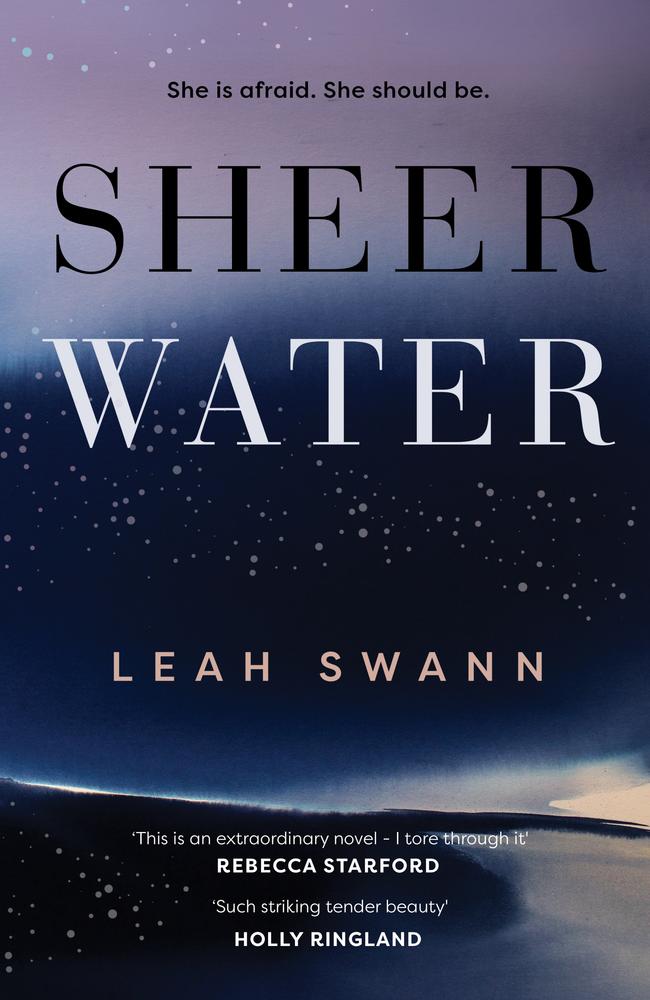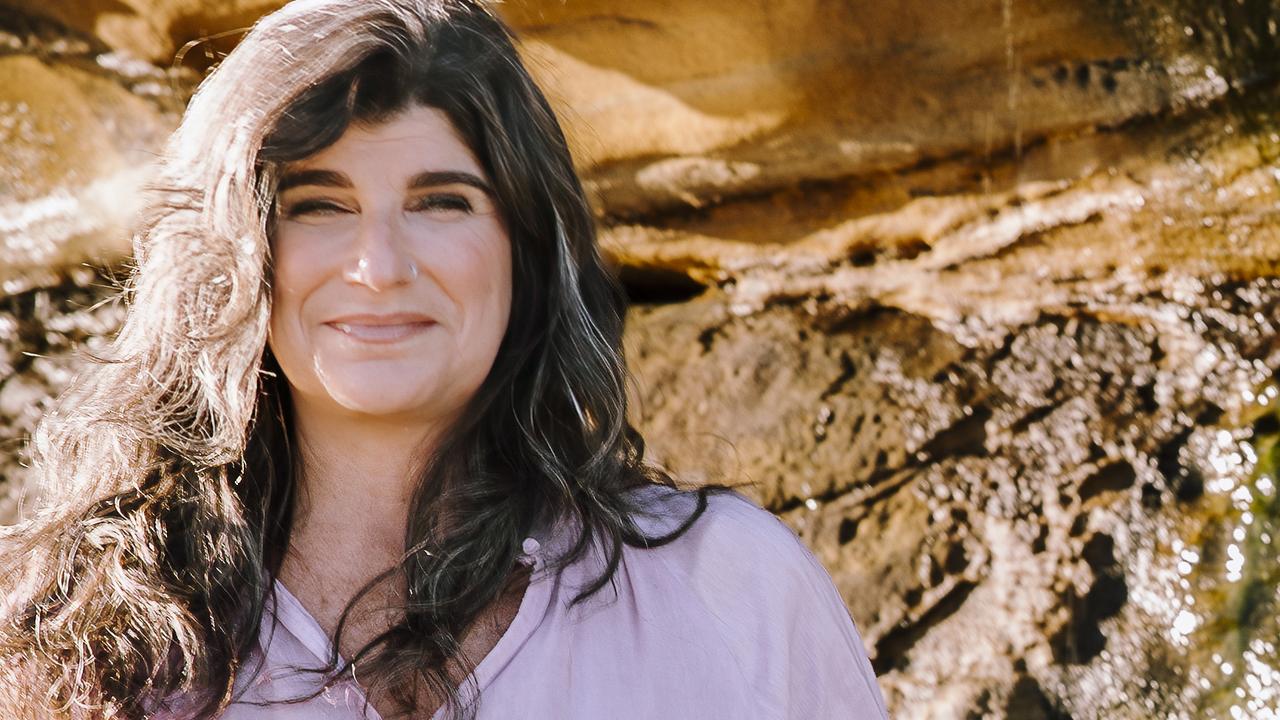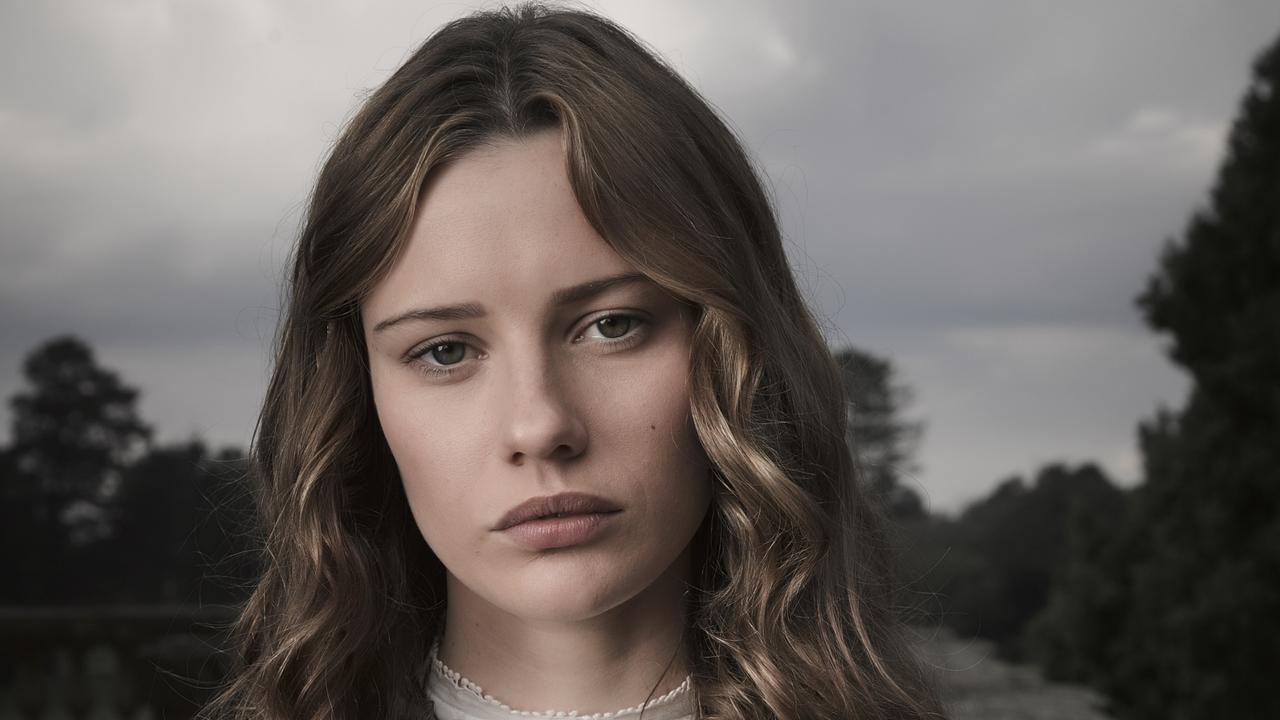Leah Swann’s new book Sheerwater explores every parent’s worst nightmare
Leah Swann’s new book looks at every parent’s worst nightmare. It delves into how we love each other and hurt each other, in a stunning gothic setting.
Books
Don't miss out on the headlines from Books. Followed categories will be added to My News.
Leah Swann has been earmarked as one to watch by the publishing industry. An experienced writer of short stories and poetry, she has just released her heart-stopping debut novel Sheerwater. It’s so impressive we’ve made it our Book of the Month — now over to Leah to tell you more.
Give us the elevator pitch for your book, Sheerwater
Ava and her two young sons, Max and Teddy, are on their way to Sheerwater on the Great Ocean Road – excited for a fresh start in a new town and leaving the past behind. They’re almost there when they witness a light plane crashing in a nearby field. Even though it’s the last thing she wants to do, Ava stops to help, but when she gets back to the car, her sons have gone missing … Basically, it’s every parent’s worst nightmare. The rest of the story explores what happened to the boys and why. It delves into how we love each other and hurt each other, in the stunning gothic setting of the ‘shipwreck coast,’ and the action unfolds over just three days, so that readers race through events alongside the characters.
What was the inspiration for the story and characters?
The first scene arrived in my mind almost exactly as you can read it on the first few pages while I was on a road trip. I pictured this young woman driving with her children in the back, full of hope for the future but also gripping the steering wheel too hard. She’s keyed up, anxious, excited. When I came to write the next scene, after the boys disappear, I closed my eyes and saw her in a crowded police station. I followed the next scene and then the next as they unfolded in my mind, without too much planning. When I had a first draft I began craft it more – I decided to use suspense to keep readers turning the pages while I delved into the characters’ interior life. Ava’s character was shaped by a question: how will she respond in this crisis? Stressful situations – like the one we’re in now with the pandemic – have an uncanny way of revealing who we are.
What compelled you to write about the relationship between parents and children?
Relationships, empathy, self – these are my main preoccupations as a writer. The bond between the parent and child is the first relationship, the core, the foundation stone to who we are and what we become. For a child, love from the parent affirms you and your existence in some crucial way. It builds your sense of self. As a mother or father, you discover you care about someone else more than yourself. If you don’t, things become damaging, even disastrous. The lost or abandoned child is an enduring motif in art because it resonates in us – we’ve all been alone and vulnerable. Charles Dickens often wrote about orphans and how acts of kindness towards them – however small or incidental – could make all the difference. It’s a fascinating topic to explore in fiction.

Who is your favourite character in this novel?
It began as Ava but switched to Max. I grew to love him and how carefully he tries to protect his little brother, and how much he hopes that everything will be alright.
How did you find writing from the viewpoint of one of the children, Max?
Max was a revelation. He’s a sensitive, shy, indecisive boy suddenly plunged into a dangerous and frightening situation. He has to draw on new inner resources and make decisions for himself and his brother that force him out of his habitual caution. Writing from his perspective was surprising – something about his warmth and kindness and above all his innocence, opened the door to childhood. I found myself remembering how mysterious adults seem when you’re young, and reconnecting to that childlike, unclouded sense of justice.
This novel explores gaslighting by a manipulative husband. How does this turn out to be so damaging for the wife, Ava?
There’s a fearsome ambiguity at the core of some relationships — in this case a marriage, where all that was trusted has become slippery. People can be undermined or coercively controlled to the point where they almost lose their sense of self – this is what Ava is fleeing, she’s trying to save herself and her sons from the instability created by that ‘gaslighting’ behaviour. She’s planning to create a new home, with true stability for her children. She knows at some level her claim for freedom might activate the monster in her controlling husband. After her sons go missing, she’s terrified that her decision may have put them in mortal danger.
Sheerwater has a strong sense of place, being set in a small coastal town. What is the significance of the water in your novel?
At fourteen I experience being caught in a rip in the surf and losing sight of the shore. That sensation of endless blue water rising and falling all around me, the panicky feeling of treading water and hoping I wouldn’t get exhausted and go under later struck me as a great metaphor. There’s a dimension in human relationships when painful or mysterious problems arise that we’re trying to make sense of, when we’re ‘at sea’ and floating or swimming or struggling in this emotional realm. When people get desperate it can lead to madness or violence or death. But this is also where people can remake themselves, save themselves — and each other.
Sheerwater leads to the question, do we ever really know each other or even ourselves? What do you think?
Ah – the million dollar question! In life we learn to know people by their actions, and mentally sort the creeps from those we recognise as ‘gold’. But we’re always discovering that we’re mysteries, we’re complex, the creeps have redeeming qualities and those who seem like gold have shadows. There’s always more to people than we can ever know – we understand this from the vastness of our own inner life, and also from things other people can see about us that we can’t see ourselves. There’s an endless depth of possibility and there’s also a true character. Self-knowledge improves relationships, which is why we owe it to those we love to strip off inherited beliefs or codes to become more authentic, and identify what in us needs work so we can develop traits we admire – courage, honesty, compassion.
What do you hope readers take away from your book?
The best reading experience is when the story comes alive in the reader and people to feel what needs to be felt. Kafka said that a book should be an axe to the frozen sea within us. That will be different for everyone but cracking that frozen sea could take the form of remembering how it is to be a little person full of simple love for the grownups who care for you. Our culture’s so sophisticated that it’s easy to forget to value and protect the innocence of childhood.
What are the best three books you’ve read this year?
Olive Again by Elizabeth Strout, Boy Swallows Universe by Trent Dalton, and essays from We Are Here, edited by Meg Mundell.
Sheerwater is such a gripping read we had to make it our Book Of The Month, which means you get it for 30 per cent discount at Booktopia with the code SHEERWATER. And do visit the Sunday Book Club group on Facebook — there are hundreds of like-minded book lovers joining every week.
Originally published as Leah Swann’s new book Sheerwater explores every parent’s worst nightmare


